Dadasaheb Phalke Award
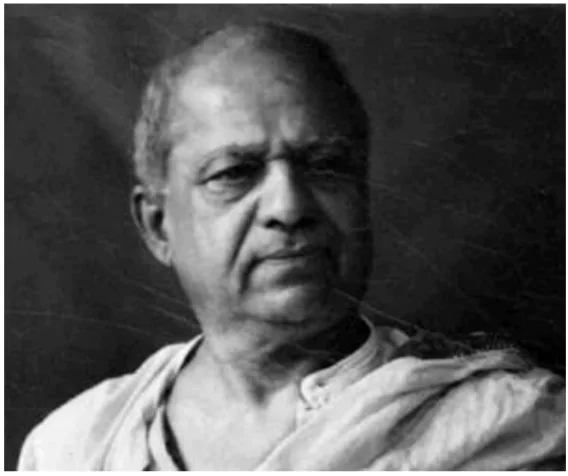
|
Actor-politician Mithun Chakraborty has been named as the recipient of the prestigious Dadasaheb Phalke Award for 2024.
About the Award:
- Country’s Highest Film Honor: The Dadasaheb Phalke Award is the highest film award in India.
- Established: The Directorate of Film Festivals (DFF), a wing under the Ministry of Information and Broadcasting, instituted this award in 1969 to honour personalities of Indian cinema.
- Presentation of the Award: It is given annually by the President of India.
- Components of the Award: The Award comprises a ‘Swarna Kamal’, a cash prize of Rs 10 lakh, a certificate, a silk roll, and a shawl.
- Selection Committee: The winner is selected by a committee consisting of eminent personalities from the Indian film industry.
- Recognising Regional Cinema: The Dadasaheb Phalke Award honours contributions to both Hindi and regional cinema, including Telugu, Tamil, Kannada, Malayalam, Marathi, and Bengali industries.
- First Recipient: The first recipient of the award was Devika Rani, recognized as “the first lady of Indian cinema.
- She founded the first Indian public limited film company, Bombay Talkies, in 1934
About Dadasaheb Phalke:
- Dada Saheb Phalke directed India’s first full-length silent feature film, Raja Harishchandra (1913).
- He is considered to be the father of Indian cinema.
- He was an Indian producer, director, and screenwriter.
|
Operation Chakra-III
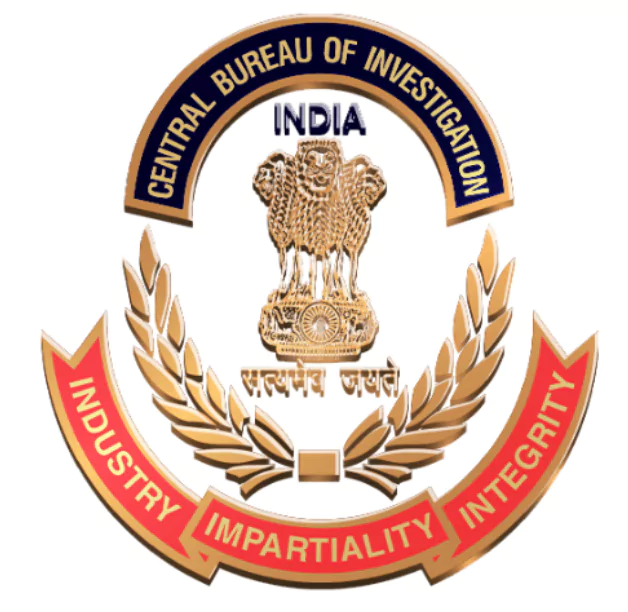
|
Context:
The Central Bureau of Investigation (CBI) recently arrested 26 individuals from Pune, Hyderabad, and Visakhapatnam during a major crackdown on a technology-driven crime network across 32 locations.
About Operation CHAKRA-III:
- This operation is part of a broader initiative to tackle organised cyber-enabled financial crimes, which have become a growing global threat.
- It is a landmark initiative led by the CBI in collaboration with international law enforcement agencies like the FBI (US) and INTERPOL.
- Aim: To combat and dismantle organised cyber-enabled financial crime networks.
- It focuses on globally coordinated responses through INTERPOL channels to share vital information and resources.
- The operation emphasises collaboration and intelligence-sharing to disrupt transnational crime networks that exploit technological loopholes for financial gain.
|
iDEX and QuNu Lab
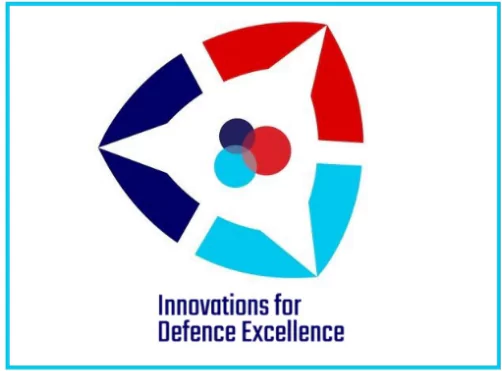
|
Context: The Indian Army recently signed its eighth procurement contract under the Innovations for Defence Excellence (iDEX) initiative for ‘Quantum Key Distribution (QKD)’ technology with QuNu Labs.
- This contract, aimed at enhancing secure communication, will replace traditional algorithm-based encryption systems, contributing to greater data security and reducing manpower requirements.
About iDEX:
- Launched by the Prime Minister in April 2018 during Defence Expo India.
- Aim: To foster innovation and technological development in India’s Defence and Aerospace sectors.
- It engages startups, MSMEs, R&D institutes, academia, and individual innovators by providing grants and support for developing cutting-edge technology solutions.
Significance of iDEX:
- iDEX is crucial for promoting indigenous defence innovation under the Atma Nirbhar Bharat initiative.
- It connects startups and innovators with defence needs, ensuring rapid technological advancements for future adoption by the Indian Armed Forces.
About QuNu Labs Private Limited:
- It was Founded in 2016 through an incubator at IIT-Madras and is based in Bangalore, QuNu Labs is a leader in quantum cryptography.
- It provides quantum-safe data encryption, secure key generation, and distribution solutions for the financial sector, telecoms, enterprises, defence, and governments globally.
- QuNu Labs focuses on protecting assets from present vulnerabilities and future cyber threats.
|
KAZIND 2024
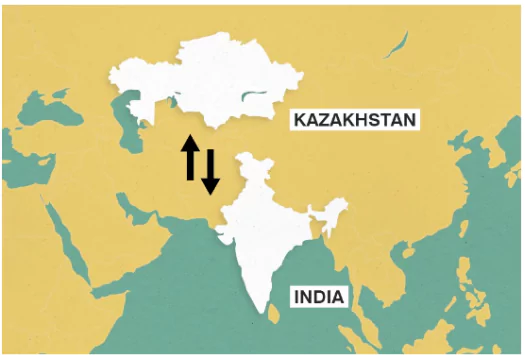
|
Context:
The 8th edition of India-Kazakhstan Joint Military Exercise KAZIND-2024 will be held from 30th September to 13th October 2024 at the Surya Foreign Training Node, Auli, Uttarakhand.
About The KAZIND Exercise:
- Origin: KAZIND is a joint military exercise held annually between India and Kazakhstan since 2016. The last edition was conducted at Otar, Kazakhstan.
- Contingent: India will be represented by a battalion of the KUMAON Regiment of Indian Army while Kazakhstan will be represented by personnel from Land Forces and Airborne Assault Troopers.
- Aim: To undertake counter terrorism operations in a sub conventional scenario under Chapter VII of the United Nations Charter focusing on operations in the semi-urban and mountainous terrain
- Objective: It will enable both sides to share best practices in tactics, techniques and procedures of conducting joint operations, facilitating interoperability, bonhomie and camaraderie between the two armies
|
Marburg Viral Disease
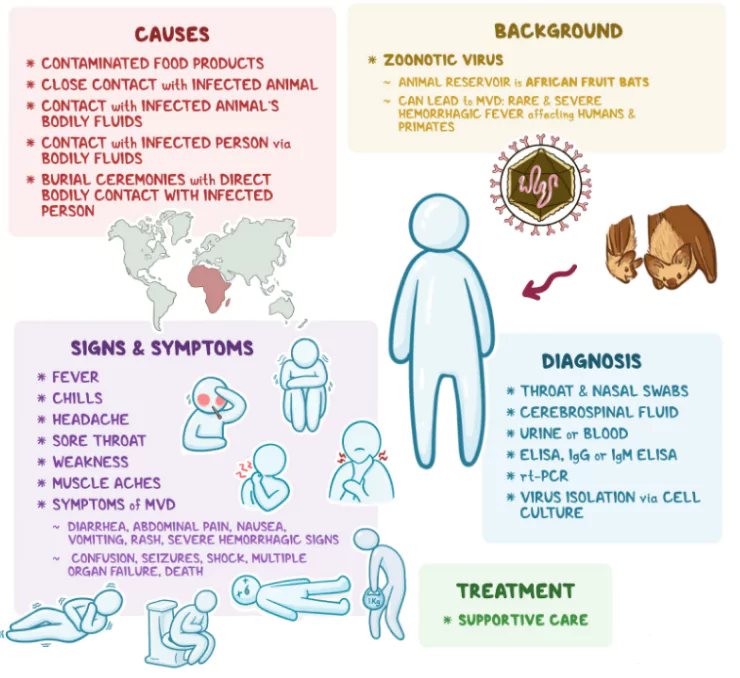
|
Context:
An outbreak of the Marburg Virus disease has resulted in the death of six person in Rwanda
About Marburg viral disease:
- Family: Marburg belongs to the filovirus family, which also includes Ebola
- First Case: The Marburg Virus was first identified in the German city of Marburg in 1967 in a lab where workers had been in contact with infected green monkeys imported from Uganda.
- Endemic: The disease most commonly found in sub-Saharan Africa, where the virus is endemic in the arid woodlands of equatorial Africa
- All recorded MVD outbreaks have originated in Africa.
- Symptoms: It causes a highly infectious hemorrhagic fever similar to Ebola along with bleeding, and organ failure etc
- Carrier Agent: African fruit bat; African Green Monkeys
- Transmission: The virus can be transmitted from bats to primates and humans. Within humans it can spread through direct contact with blood or other body fluids from infected individuals.
- Mortality Rates: Mortality Rates in confirmed cases have ranged from 24 per cent to 88 per cent.
- Treatment: At present, there are no vaccines or antiviral treatments for the Marburg viral disease.
|
The Council of Europe’s Rights Prize 2024

|
Context:
The Council of Europe has awarded its 2024 Vaclav Havel Human Rights Prize to Venezuelan politician and human rights defender Maria Corina Machado for her fight for democracy
- She became the first Latin American to win the award
- Runner ups: Azerbaijani human rights defender and activist Akif Gurbanov and the Georgian feminist activist and human rights lawyer Babutsa Pataraia
About the The Council of Europe Human Rights Award
- The prize is named after the late Czech dissident, playwright and post-communist president Vaclav Havel.
- It is an annual €60,000 award honouring “outstanding” civil society action in defence of human rights, in Europe and beyond.
- Established: It started in 2013 by the Parliamentary Assembly of the Council of Europe, the Václav Havel Library and the Charta 77 Foundation
- 2023 Winner: The Turkish philanthropist and civil society activist Osman Kavala.
|
![]() 1 Oct 2024
1 Oct 2024
